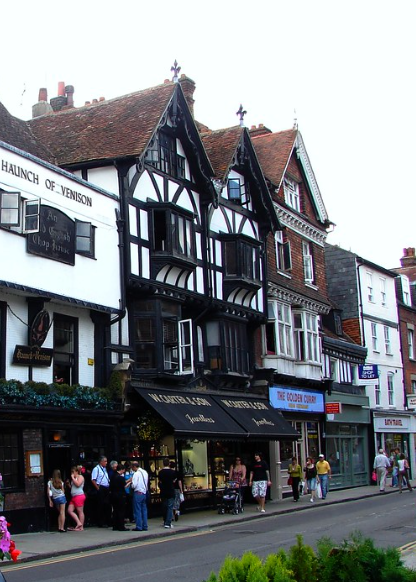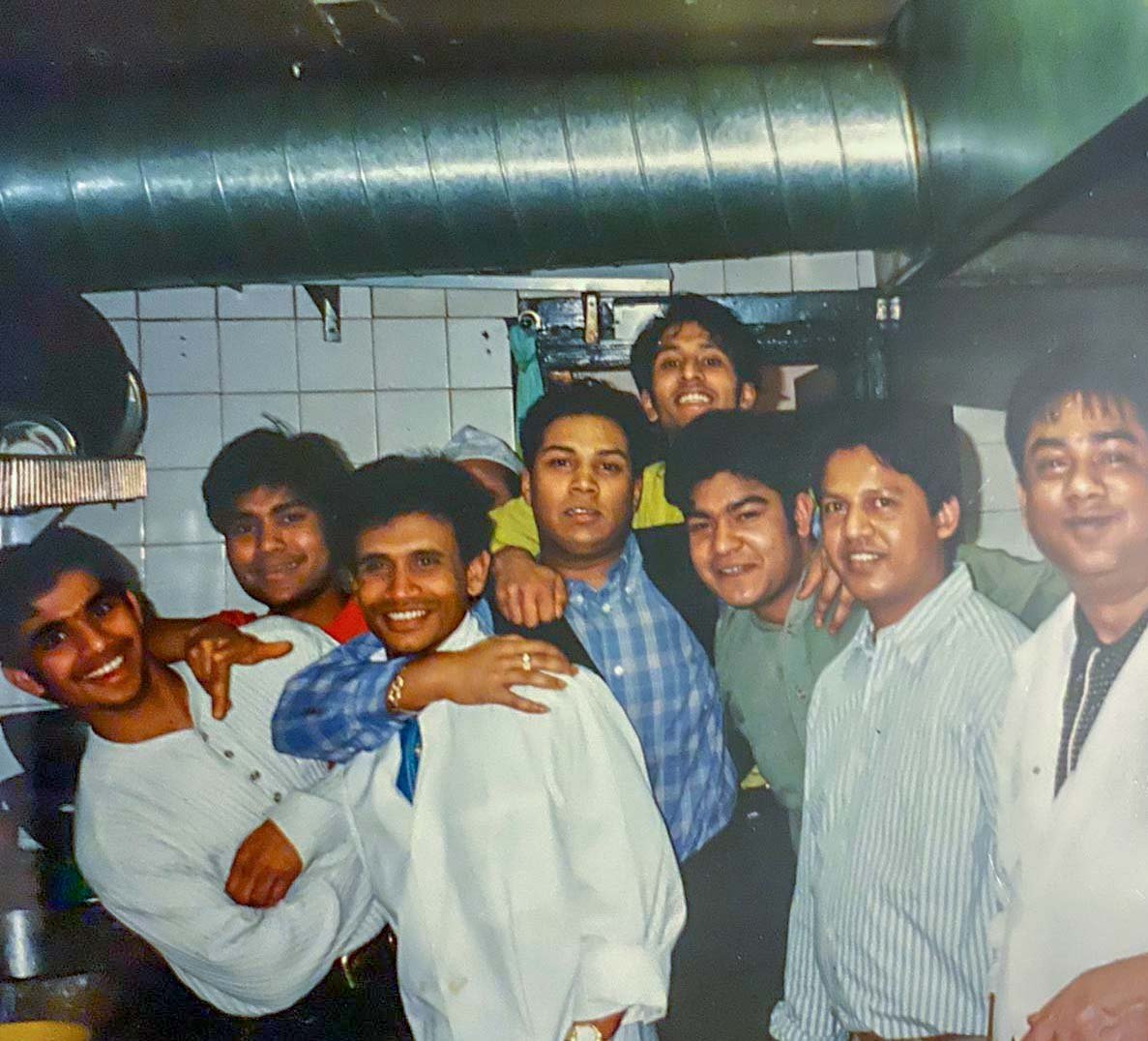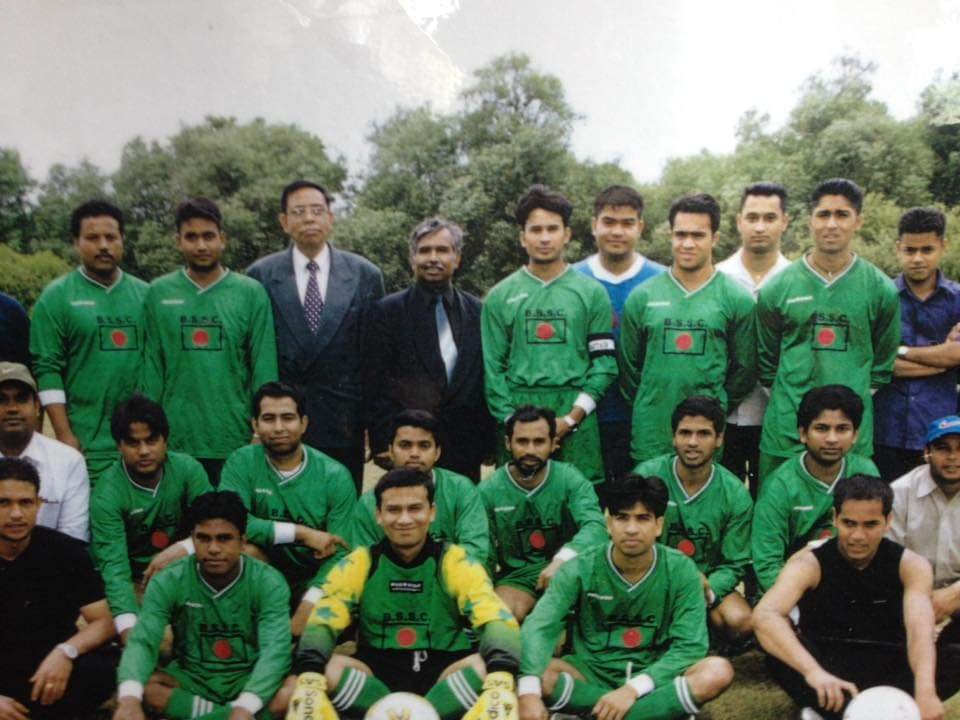History of Settlers
British Cities and TOwns
Salisbury, Wiltshire
The History of the Bangladeshi Community in Salisbury
The Bangladeshi community has been an integral part of Salisbury’s history since the 1960s, significantly enriching the city’s cultural landscape. This page provides detailed information about the contributions and legacy of the Bangladeshi settlers in Salisbury.
Nasir Ali‘s journey from Bangladesh to Salisbury has been emblematic of the Bangladeshi community’s resilience and entrepreneurial spirit. In 1962, he established The Asia Restaurant, Salisbury’s first Bangladeshi eatery, laying the groundwork for a flourishing community.
The Asia Restaurant, founded by Nasir Ali along with Arosh Ali and Moyna Miah in 1962. After a few years the original founders of the restaurant moved on after selling their shares to others including Mansur Uddin Choudhury, who had arrived to live and work in Salisbury. It also housed many of the Bangladeshi settlers and continued to trade as the Asia for many years, Mr Siraj Ahmed and his family ran the restaurant from 1971 until it closed in 2015. Friday prayers were also held above the Restaurant until the Muslim Association of Salisbury purchased a property in 1998.
The Golden Curry was opened by Mansur Uddin Choudhury, in 1973. This was the third Indian restaurant, marking a new chapter in the story of the Bangladeshi community’s presence in Salisbury.
In January 1982, Fazlur Rahman purchased Golden Curry from Mr. Mansur Uddin and established his residence in Salisbury, living above the restaurant with his family.
Mr Rahman remained actively involved with Golden Curry until the early 2000s, when he sold his share of the business. Notably, The Golden Curry hosted the first Jumma (Friday) prayers in 1983, marking a significant milestone for the Bangladeshi and Muslim community in the area.
The Golden Curry
In 1970, Nasir Ali along with relatives opened the second Indian restaurant in Salisbury, The Taj Mahal. It was here that Nasir Ali brought his young family in 1972 to live shortly after the foundation of Bangladesh. In 1978 Nasir Ali and his family purchased a house in Rampart Road Salisbury for £11,000, it was the first house purchased by a Bangladeshi family and they were closely followed by Mansur Uddin Choudhury who purchased a house in Greencroft Street.
The Rajpoot Tandoori
The new restaurants, The Rajpoot Tandoori and The Shah Jahan that opened in the Eighties opened a new chapter for Bangladeshis settling down in Salisbury. Whilst a lot of the staff that came to the earlier restaurants moved on from Salisbury, many of the new staff settled down and brought their families to settle in Salisbury too. By the nineties there were many Indian takeaways and restaurants doing good trade and as a result the Bangladeshi community grew much quicker than before.
The First Masjid
In 1997, the Muslim Association of Salisbury, primarily representing the Bangladeshi community, purchased a house on Wilton Road. Permission was granted to hold prayer meetings and teach children about Islam at this location. This significant milestone encouraged many more Bangladeshi families to settle in Salisbury, fostering a growing and vibrant community.
Salisbury Bangladeshi Football Team
Since the turn of the century, the Bangladeshi community has become an integral part of mainstream Salisbury society. Over the last 20 years, the community has expanded beyond the restaurant and takeaway industry, with many now thriving in the taxi and private hire trade. Today, a large number of taxi and private hire drivers in Salisbury are of Bangladeshi origin.
Community members have also made significant contributions across various sectors, including care homes, the local hospital, and other professions. Academically, the children of the first few generations have excelled, pursuing higher education and professional careers both in Salisbury and beyond. Additionally, the community has a proud tradition of organizing football teams, with Bangladeshi players competing in matches against teams from other towns.




